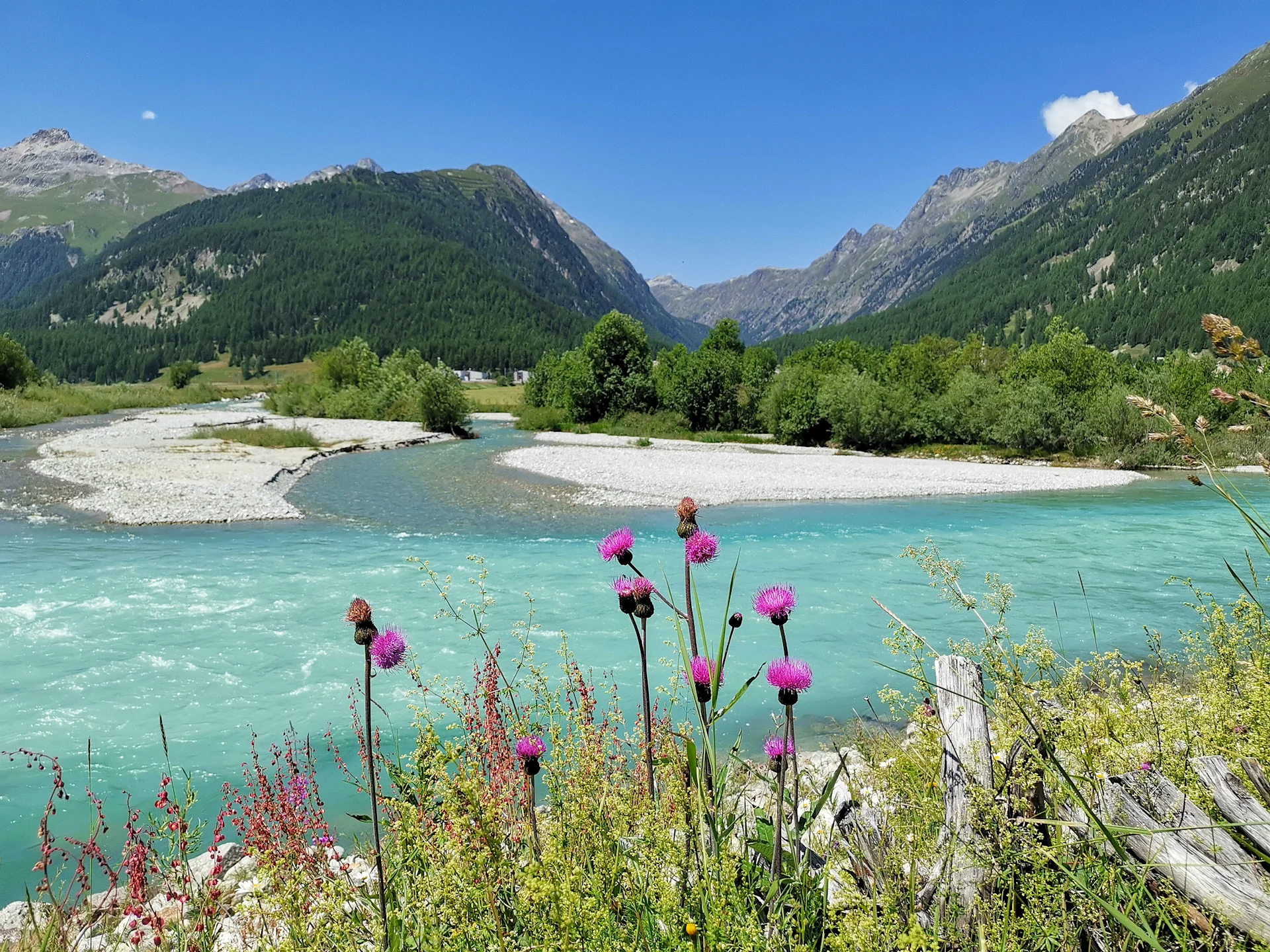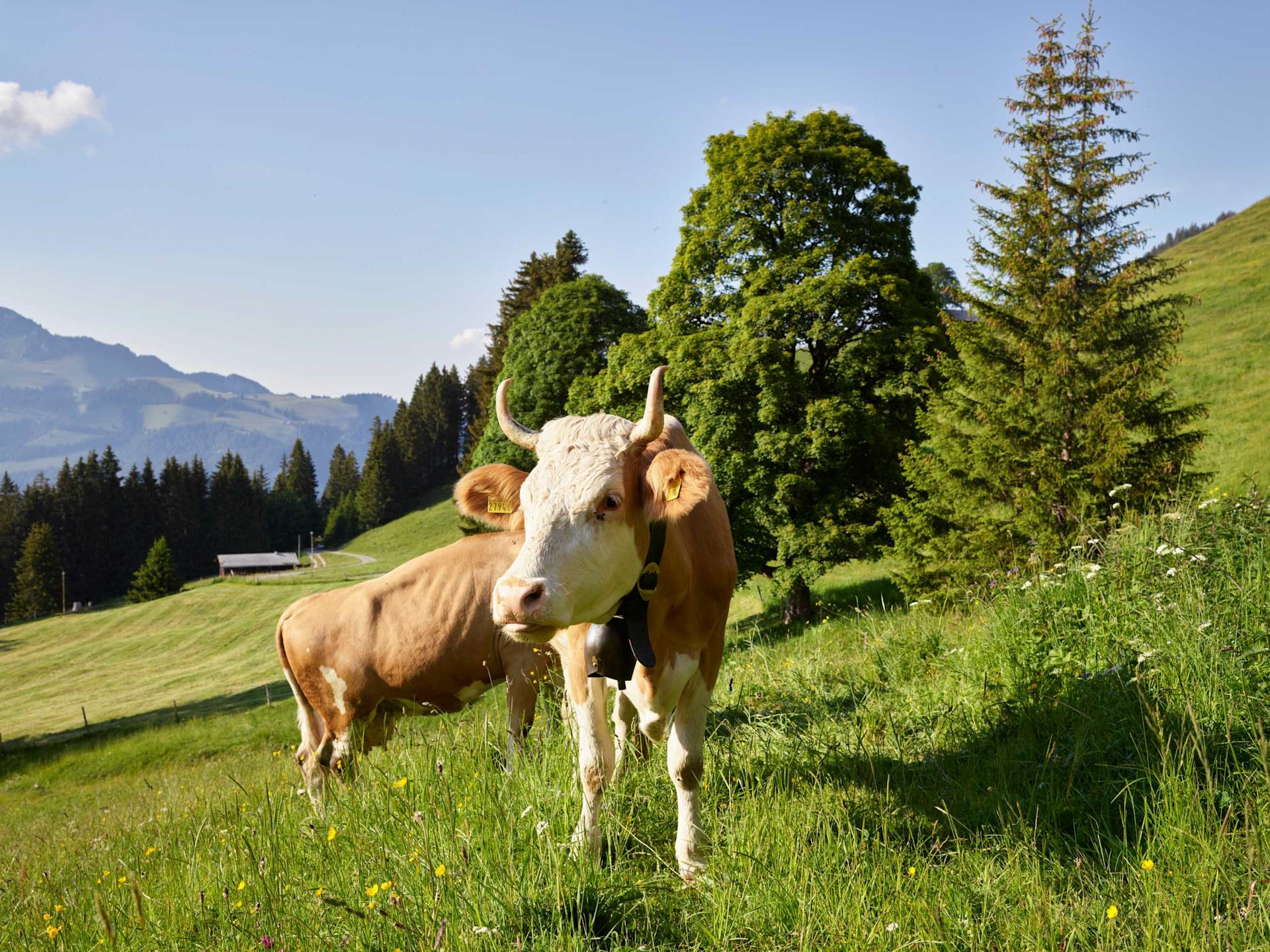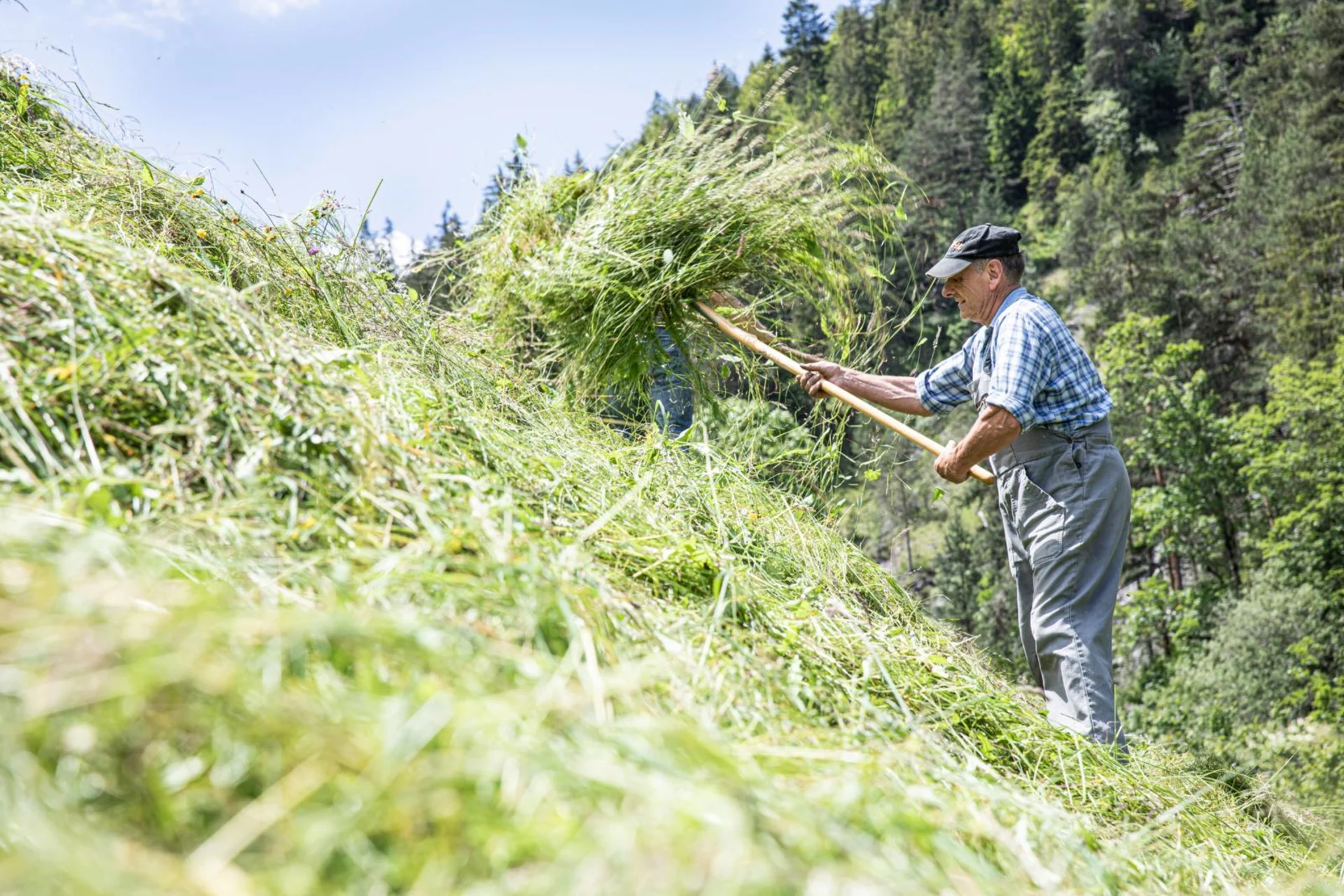
Biodiversity
Back to nature
The example of Bever shows the benefits of renaturation the floodplains. We also present four day trip destinations.
navigation

Animal welfare
Migros backs meadow milk where fresh milk is concerned. This commitment benefits not only the cows, which are able to spend plenty of time out in the fresh air, but also biodiversity and consumers too, who get greater sustainability for the same price.
Not all milk is the same, that’s clear for Migros. That is why IP-Suisse meadow milk with the ladybird logo has been the minimum standard for our fresh milk since the beginning of 2022. It is produced by farmers who are committed to animal welfare and biodiversity. In this way, we are bringing about a change towards greater sustainability in Swiss agriculture. Migros maintains a long-term and fair partnership with farmers.
Meadow milk comes from Swiss cows that are kept in a particularly animal-friendly manner. In addition, meadow milk performs excellently when it comes to biodiversity and the climate. The IP-Suisse farmers ensure that dairy cows are kept and fed in a manner appropriate to their species. Regular grazing out in the pastures is mandatory.
It reflects the cow’s natural diet.
The amount of resources and money spent on preserving fodder is low.
The grassland on steep slopes in the Alps is pre-destined for keeping dairy cows.

When it comes to sustainably-produced milk according to IP-Suisse standards, however, we don’t just make sure that the animals can graze out in the fresh air regularly. The guidelines also take biodiversity and the climate into consideration. These are the key points:
Free ranging in the pastures
The cows must be kept according to “RAUS regulations” as a minimum, which means being able to free range regularly – at least 26 days per month in summer and 13 days per month in winter. Being kept in a meadow encourages movement and thus benefits the health, longevity and fertility of the animals.
Lots of Swiss grass and hay
The dairy cows of our IP-Suisse farmers feed mainly on grass in the pasture in summer and mostly on hay and silage in winter; concentrated feed is used as little as possible. The high proportion of grass improves the quality of the milk because it increases its unsaturated fatty acid content. In addition, the high proportion of green fodder (pasture and fresh grass) reduces the energy consumption needed for fodder preservation. This has a positive effect on the climate.
Fair partnership
We rely on a long-term and fair partnership with our milk producers from IP-Suisse. In addition, our dairy farmers have received a sustainability supplement per kilogram of milk since 2019 to compensate for the more complex production.
Prevention instead of antibiotics
Animal health is a key concern in sustainable milk production. We support our IP-Suisse farmers in preventing diseases through optimal animal husbandry. This leads to the significantly lower use of antibiotics.
Habitat protection
IP-Suisse farmers commit to implementing a certain number of measures for the promotion of biodiversity. For example, they provide hedges as a habitat for insects or flower strips for pollinators and other beneficial insects.
Reduction of CO₂
Due to the large amount of free-range grazing and the sparse use of concentrated feed, the majority of the feed comes from Switzerland. Long transport journeys are therefore not needed. Furthermore, IP-Suisse has set itself the goal of reducing greenhouse gas emissions (CO 2 equivalents) on its farms. In addition to measures such as photovoltaic systems, the reduction of climate-intensive mineral nitrogen fertilisers and methane emissions are also being assessed.
Promoting biodiversity: we can't do it on our own. Play your part now and protect Switzerland's biodiversity together with us!